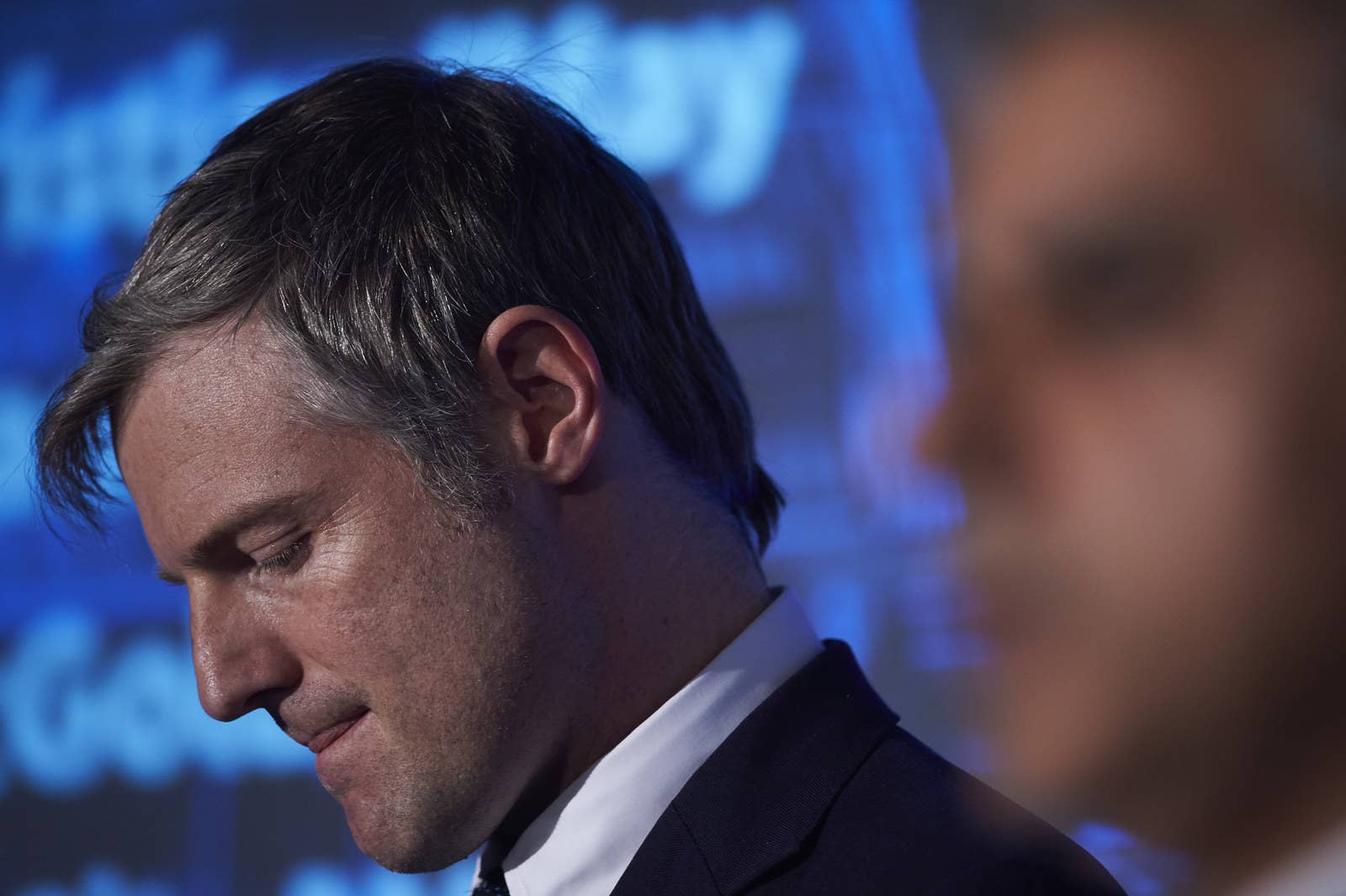
"Zac! Zac! Zac! Zac! Zac!" It wasn't often during the London mayoral contest that you heard the name of the Conservative candidate being chanted by adoring fans. But three days before the election, dozens of Zac Goldsmith enthusiasts crammed into a Richmond school hall to give him a much-needed boost. As Goldsmith stood on stage with a self-conscious smile, he was clapped, cheered, and whistled at by Tory supporters dutifully waving "Back Zac" placards handed out by press officers.
David Cameron and Boris Johnson stood by his side like proud parents. Unfortunately it was Johnson, the celebrity mayor Goldsmith was seeking to succeed, who really drove the crowd wild. Mussing up his trademark hair, he launched into a rambling, doom-laden speech on the perils of backing the other side: "The terrible truth is that the Labour candidate for mayor, Sadiq Khan, has emerged from the Corbynistas and the Livingstonians. He comes from that strain of political thinking! Do we want those types of people back in City Hall?" "No!" shouted the joyful crowd.
Alas for the Tory campaign, this stuffy room of just over 100 carefully selected supporters did not quite reflect the mood of the capital. In the early hours of Saturday morning Goldsmith was roundly beaten in the final round by Khan by 1,310,143 votes to 994,614. Could it have been that the relentless focus on Khan’s Muslim faith – and insinuations he was soft on terror – may have backfired by actually driving more voters into the arms of Labour?
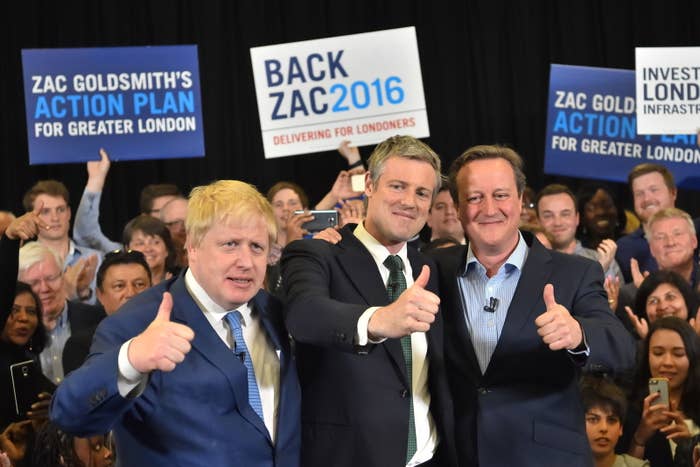
How times change. When he announced he was running as the Tory candidate last June, Richmond Park MP Goldsmith was 2/1 favourite to win. Many thought at first he was an inspired choice – a well-known figure who wasn’t your usual grey-suited Tory, someone who stood up for what they believed in and was respected by MPs from all sides for his environmental activism and campaign work (shadow chancellor John McDonnell has long fought alongside him against a third runway at Heathrow).
For a while Goldsmith was expecting to be up against Labour’s Tessa Jowell, the popular ex-Olympics minister. So his team was thrilled when instead Khan secured the candidacy by winning votes from the thousands of left-wing supporters who came out for party leader Jeremy Corbyn. A key ally of general election loser Ed Miliband, Khan had been mocked in Westminster for his tendency to speak too fast at the despatch box and garble his words.
But Khan had proved himself a diligent, well-liked MP in Tooting who had spent over a decade cultivating his links with the local community. It was in this spirit that he fought his campaign – as the underdog on the side of people just like him. Time and again the former human rights lawyer emphasised his childhood on a council estate in south London and his immigrant dad’s job as a bus driver. In fact he mentioned the latter so much that it became a running joke ("Not sure if you’ve heard this but…").
The contrast with wealthy eco-warrior Goldsmith was clear. The son of billionaire financier and Referendum Party founder Sir James Goldsmith, he grew up in a west London mansion and was expelled from Eton when cannabis was found in his room. Khan told BuzzFeed News on Tuesday he had rejected advice early in the campaign to attack Goldsmith for his background. And he said Goldsmith should have done the same when his team advised him to paint Khan as a man who shared a platform with extremists.
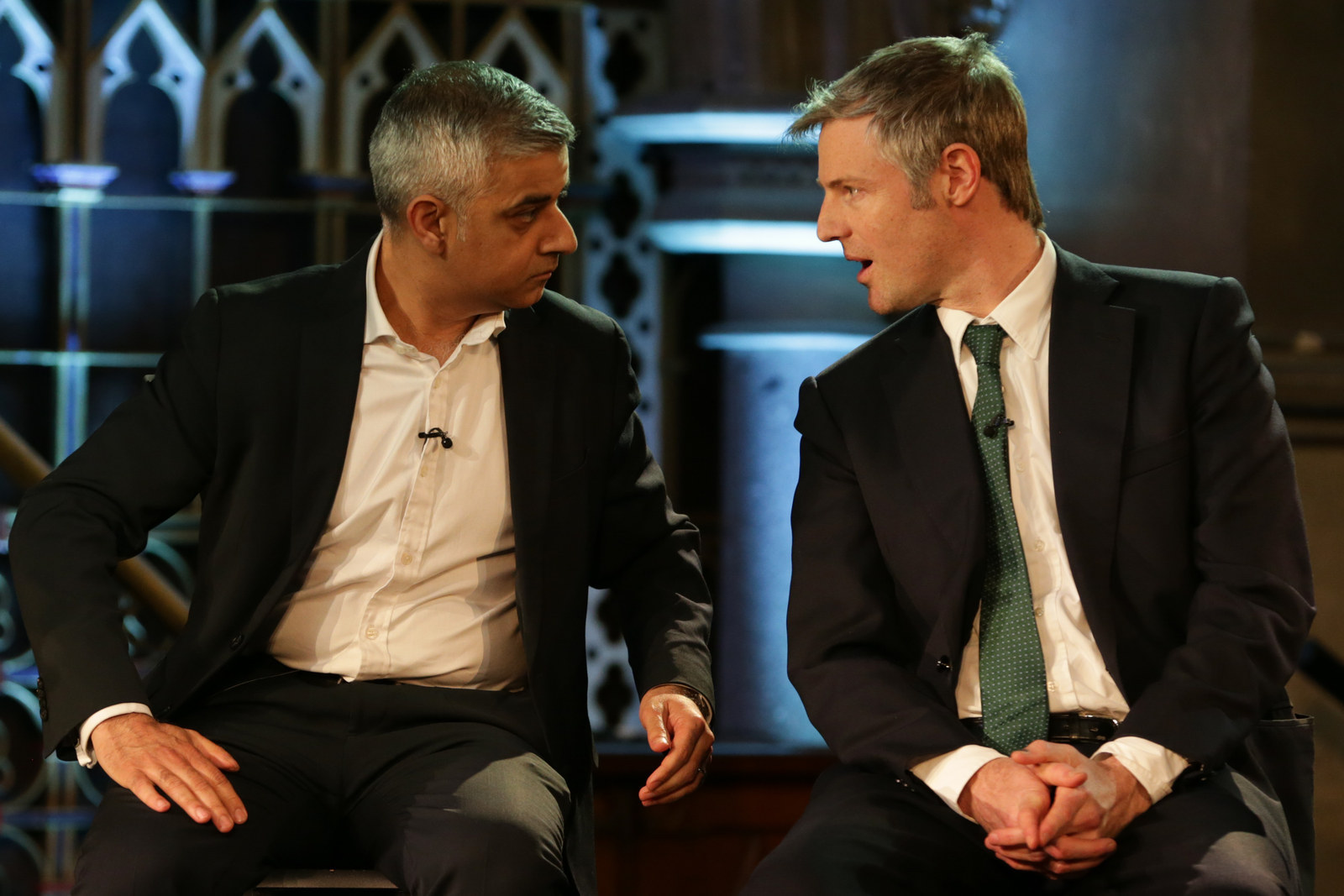
Goldsmith’s campaign was run by Mark Fullbrook, a former head of campaigns at the Conservative party who is now a partner at CTF, a firm co-founded by Tory general election guru Lynton Crosby. While Crosby himself wasn't personally involved (critics claim he doesn’t want to be tainted with defeat), the campaign bore all the hallmarks of his beloved “dog-whistle” tactics by heavily implying that Khan is in cahoots with Muslim extremists without actually saying so outright.
Goldsmith has been unapologetic about repeatedly questioning Khan’s judgment in appearing alongside people with extreme views at public events. He labelled him "radical and divisive" on election leaflets, which Khan’s team warned was a "coded racist attack". And he was strongly backed by the prime minister, who has warned in the House of Commons of Khan’s connections with "extremists".
Cameron also sought to remind voters that Khan nominated Corbyn as Labour leader and warned they will simply be "lab rats in Labour’s experiment in London". Goldsmith robustly defended this word “experiment”, telling us in March: "Voting for Sadiq Khan, you don’t know what you’re going to get, is the truth. And I say that as someone who’s trying very hard to understand who he is."
Tory HQ pushed so hard on the extremist angle for so long that they clearly believed it would win them some votes. And perhaps it did. Privately some Labour MPs in the capital warned that allegations about the party's links with extremists had touched a nerve with constituents. But in a city like London where diversity and tolerance is generally embraced and encouraged, it’s likely that the tactics also drove some wavering voters towards Khan.
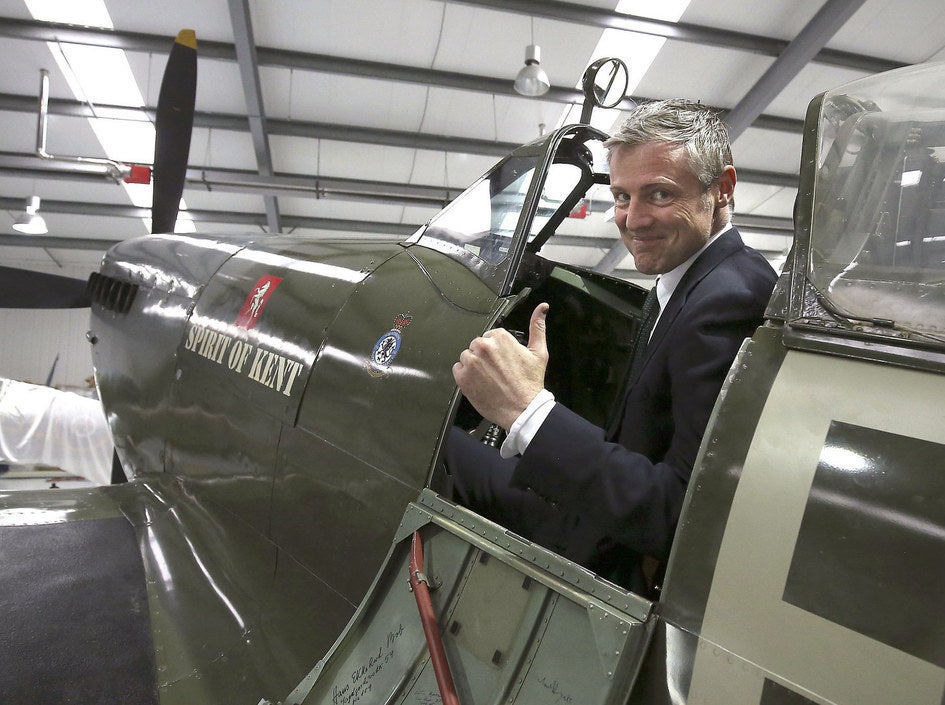
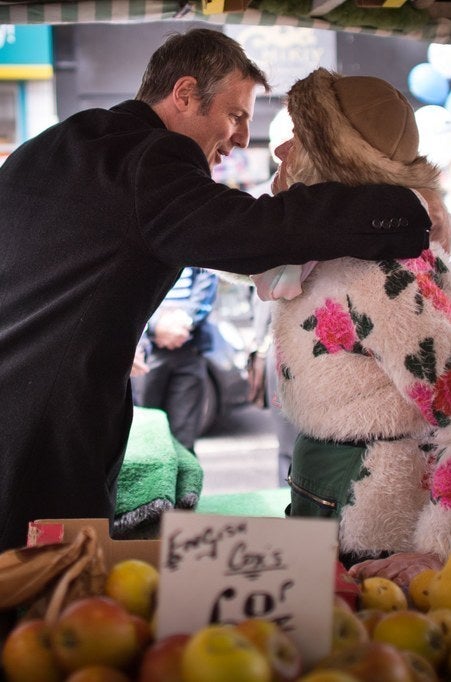
Muslim voters who previously supported Goldsmith told us on Wednesday they were deeply disappointed by his campaign and would no longer be voting for him. Among Conservatives, the postmortem will get well and truly under way this weekend. But even as the polls closed on Thursday, one senior Tory broke ranks to describe the campaign as "outrageous".
Andrew Boff, leader of the Conservatives on the London assembly, told BBC Newsnight: "I don’t think it was dog-whistle, because you can’t hear a dog whistle. Everyone could hear this. It was effectively saying people of conservative religious views are not to be trusted and you shouldn’t share a platform with them."
Baroness Sayeeda Warsi, a former Conservative party chair, was also hugely disappointed with the campaign – not least when an anti-Khan opinion piece penned by Goldsmith for the Mail on Sunday was illustrated with a photo of the bus destroyed in the 7/7 London bombings. She tweeted last weekend: “This is not the Zac Goldsmith I know. Are we Conservatives fighting to destroy Zac or fighting to win the election?”
Our appalling dog whistle campaign for #LondonMayor2016 lost us the election, our reputation & credibility on issues of race and religion.
The Tory campaign’s obsession with attacking Khan also meant that Goldsmith's own character and individuality stayed hidden. Goldsmith was never going to be the showman that Johnson has been. But he was a highly respected local MP, the one who won the single biggest increased majority in the country at last year’s general election, not least because he was free thinking and willing to stand up to the government on issues such as Heathrow.
It didn’t help that up until the last few weeks of his campaign, Goldsmith was virtually nowhere to be seen. Journalists, both print and broadcast, constantly complained that they hadn’t been told he was doing a walkabout or an event. At an event in Ilford, east London, in March, one reporter grumbled: "By this stage in the campaign last time round, we’d followed Boris all over the place."
Khan’s press team, by contrast, led by former lobby journalist Patrick Hennessy, positively welcomed journalists from all outlets to come to events and grab a few words afterwards. They weren’t ever going to win over the Evening Standard, which unsurprisingly came out for Goldsmith on Wednesday after giving him months of positive coverage, but any opportunity to get Khan’s message out was embraced.
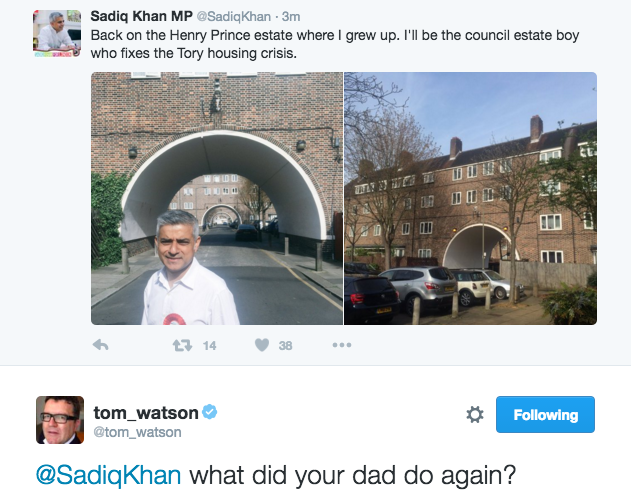
In reality the two candidates were remarkably similar when it came to policy – both claimed to be vociferously pro-business, both wanted to tackle London’s housing crisis, and both were fiercely pro-environment and anti-pollution. The big argument was over how to save Londoners money – Khan wanted to freeze transport fares, Goldsmith wanted to freeze council tax.
When Goldsmith did get out and about, glad-handing market traders and shoppers, he was often accompanied by his friend and mentor Boris Johnson. The instantly recognisable mayor played a big part in Goldsmith’s campaign, appearing in countless Facebook videos with him, and lent Goldsmith the stardust that he so desperately needed. The only trouble was that far more people wanted selfies with Johnson than the candidate.
It was only at the tail end of the campaign that Goldsmith started to loosen up a bit; suddenly he was cooing over babies, holding a pint in the pub, visiting kittens and puppies at Battersea, and embarking on a 24-hour tour of London with milkmen and lorry drivers. But most of these carefree moments were stage-managed and carefully edited for Facebook and Twitter so that Team Goldsmith could control the output.
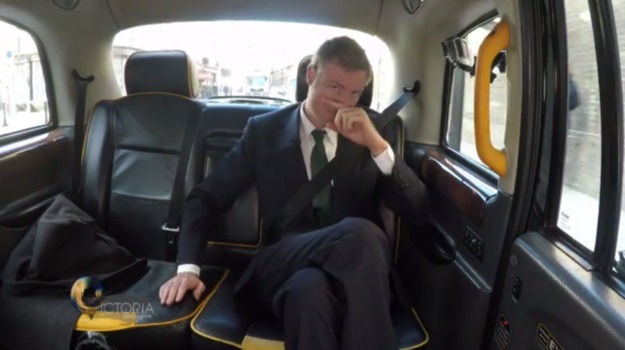
When broadcasters did get involved, that’s when things started to go a bit wrong. There were moments of sheer toe-curling embarrassment, such as when Goldsmith professed to love Bollywood but couldn’t name a single film.
Or when he sat in the back of a cab for a BBC interview and couldn’t answer some basic trivia questions about London. That clip, which quickly went viral, was filmed a few weeks before it was aired and Goldsmith’s team had no idea anything had gone wrong, insiders told us.
Many in Westminster were surprised by the hard tone of Goldsmith’s campaign, particularly given his mild-mannered personality when he entered parliament in 2010. One Tory MP told us that he hoped the experience of fighting such a high-profile contest would give Goldsmith some “much-needed confidence” when he returns to Westminster. But a Labour MP said he would be a “pariah” and thought of as “weak” for being pushed into a campaign he was clearly never comfortable with.
But Khan told us it was too easy to blame the people behind the politician – and that Goldsmith needed to accept “full responsibility” for the campaign. Meanwhile Khan has quietly spent the last few weeks preparing himself for life as mayor of London.
Ahead of his final campaign speech at the Southbank Centre on Tuesday, the audience was kept waiting outside the room as he diligently rehearsed his speech over and over. When the moment arrived he spoke markedly slower than usual, his words carefully emphasised for the cameras. This was a man with his eye on the prize.
